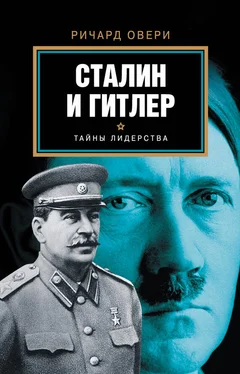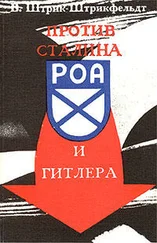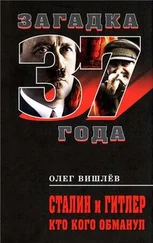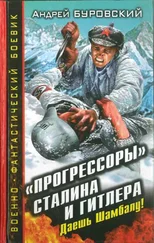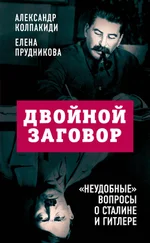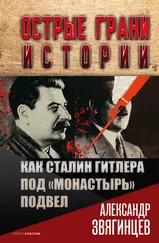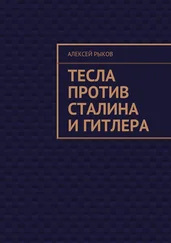7. L. Siegelbaum and A. Sokolov (eds) Stalinism as a Way of Life (New Haven, Conn., 2000), pp. 159–63; K.Petrone Life Has Become More Joyous, Comrades: Celebrations in the Time of Stalin (Bloomington, Ind., 2000), p. 175.
8. S. Davies Popular Opinion in Stalin’s Russia: Terror, Propaganda and Dissent 1934–1941 (Cambridge, 1997), pp. 102–12.
9. Davies, Popular Opinion, p. 112.
10. P. Hubert Uniformierter Reichstag: Die Geschichte der Pseudo-Volksvertretung 1933–1945 (Düsseldorf, 1992), pp. 88, 265; R. Gellateley Backing Hitler: Consent and Coercion in Nazi Germany (Oxford, 2001), pp. 15–16.
11. Hubert, Uniformierter Reichstag, p. 281.
12. Hubert, Uniformierter Reichstag, pp. 249–51, 274; IWM, FO 645, Box 156, testimony of Albert Göring, 25 September 1945, for details on voting ‘no’.
13. Hubert, Uniformierter Reichstag, p. 237.
14. J. Stalin Problems of Leninism (Moscow, 1947), p. 557, ‘On the Draft Constitution of the U.S.S.R.’, speech of 25 November 1936.
15. Ibid.
16. H. von Kotze and H. Krausnick (eds) ‘Es spricht der Führer’: 7 exemplarische Hitler-Reden (Gütersloh, 1966), p. 142, speech by Hitler to party district leaders, 29 April 1937.
17. Stalin, Problems, pp. 550–51; see too G. B. Carson Electoral Practices in the USSR (New York, 1955), pp. 50–52.
18. Hubert, Uniformierter Reichstag, pp. 61, 87; Kotze and Krausnick, ‘Es spricht der Führer’, p. 120.
19. Kotze and Krausnick, ‘Es spricht der Führer’, p. 140.
20. G. Neesse Die NSDAP: Versuch einer Rechtsdeutung (Stuttgart, 1935), pp. 143–5; Hubert, Uniformierter Reichstag, p. 240.
21. H. Rauschning Hitler Speaks (London, 1939), p. 199. Hitler told Rauschning that ‘there is no such thing as unlimited power… Even the most extreme autocrat is compelled to correct his absolute will by existing conditions.’
22. A. L. Unger Constitutional Development in the USSR: a Guide to Soviet Constitutions (London, 1981), pp. 50–52, 59–72.
23. The Constitution of the USSR. (Moscow, 1937), pp. 7–9.
24. Hubert, Uniformierter Reichstag, pp. 59–61; J. Biesemann Das Ermächtigungsgesetz als Grundlage der Gesetzgebung im nationalsozialistischen Staat (Münster, 1985), pp. 51–4, 381–2. On Hitler’s ideas of an advisory senate, Mein Kampf, vol. ii, pp. 501–2.
25. Hubert, Uniformierter Reichstag, pp. 58–63; M. Domarus (ed.) Hitler: Reden und Proklamationen 1932–1945: Band I, Triumph (Munich, 1965), p. 429; M. Moll (ed.) ‘Führer-Erlasse’, 1939–1945 (Stuttgart, 1997), pp. 49–50.
26. Labin, Stalin’s Russia, p. 31.
27. E. Lyons Assignment in Utopia (London, 1937).
28. E. van Ree The Political Thought of Joseph Stalin (London, 2002), pp. 148–9; see too J. Stalin Works (13 vols, Moscow, 1953–
55), vol. i., pp. 371–2 for his early views in ‘Anarchism or Socialism’, December 1906/January 1907. He distinguished two kinds of dictatorship – of the majority, ‘dictatorship of the street, of the masses, a dictatorship directed against all oppressors’, and a dictatorship of a minority or clique, which ‘tightens the noose around the neck of the majority’.
29. E. Mawdsley and S. White The Soviet Elite from Lenin to Gorbachev: The Central Committee and its Members 1917–1991 (Oxford, 2000), pp. 126–7; D. Volkogonov Stalin: Triumph and Tragedy (London, 1991), p. 217.
30. M. David-Fox and D. Hoffmann ‘The Politburo Protocols 1919–40’, Russian Review, 55 (1996), pp. 99–100; I. Pavlova The Strength and Weakness of Stalin’s Power’, in N. Rosenfeldt, B. Jensen and E. Kulavig (eds) Mechanisms of Power in the Soviet Union (London, 2000), p. 30; O. V. Khlevniuk Politburo – mekhanizmy politicheskoi vlasti v 1930-e gody (Moscow, 1996), pp. 330–31.
31. Mawdsley and White, Soviet Elite, p. 126; Khlevniuk, Politburo, pp. 288, 332–3; J. Löwenhardt, J. Ozinga and E. van Ree The Rise and Fall of the Soviet Politburo (London, 1992), pp. 34–5.
32. Khlevniuk, Politburo, pp. 246–52.
33. See, for example, the effects of a long Stalin holiday, from 30 June to 31 October 1935, in R. W. Davies, O. V. Khlevniuk, E. A. Rees, P. K. Liudmila and A. R. Larisa (eds) The Stalin – Kaganovich Correspondence 1931–1936 (New Haven, Conn., 2003), pp. 209–35.
34. T. J. Colton Moscow: Governing the Socialist Metropolis (Cambridge, Mass., 1995), p. 324–5, for Stalin’s close attention to the rebuilding of Moscow.
35. Khlevniuk, Politburo, pp. 290–91; see too M. Djilas Conversations with Stalin (New York, 1962), pp. 76–7: ‘It was at these dinners that the destiny of the vast Russian land, of the newly acquired territories, and, to a considerable degree, of the human race was decided.’ Djilas concluded, ‘At these dinners the Soviet leaders were at their closest, most intimate with each other.’
36. N. Rosenfeldt ‘“The Consistory of the Communist Church”: The Origins and Development of Stalin’s Secret Chancellery’, Russian History, 9 (1982), pp. 308–15, 318; N. Rosenfeldt, The Importance of the Secret Apparatus of the Soviet Communist Party during the Stalin Era’, in Rosenfeldt, Jensen and Kulavig, Mechanisms of Power, pp. 40–59; Pavlova, ‘Strengths and Weaknesses’, pp. 29–36. On Stalin’s regular access to secret intelligence on states abroad see V. V. Poznyakov ‘The Soviet Intelligence Services and the Government: Information and Military-Political Decisions from the early 1920s to the early 1950s’, in Rosenfeldt, Jensen and Kulavig, Mechanisms of Power, p. 107.
37. Rosenfeldt, ‘The Consistory of the Communist Church’, pp. 315–17, 321.
38. S. S. Montefi ore Stalin: the Court of the Red Tsar (London, 2003), pp. 59–60.
39. A. Knight Beria: Stalin’s First Lieutenant (London, 1993), pp. 172–3; Montefi ore, Court of the Red Tsar, p. 559.
40. Rosenfeldt, ‘The Consistory of the Communist Church’, pp. 320–23.
41. V. Serge The Case of Comrade Tulayev (London, 1968), pp. 257–8. See too V. Serge Memoirs of a Revolutionary 1901–1941 (Oxford, 1967), pp. 284 ff.
42. Kotze and Krausnick, ‘Es spricht der Führer’, p. 117.
43. J. Öhquist Das Reich des Führers (Bonn, 1943), p. 157.
44. H. Brausse Die Führungsordnung des deutschen Volkes: Grundlegung einer Führungslehre (Hamburg, 1940), pp. 54–60; Neesse, Die NSDAP, pp. 145–7: The Führer is the living embodiment of the majority of the people.’
45. Hubert, Uniformierter Reichstag, pp. 132–7.
46. Moll, Führer Erlasse, pp. 48–9; E. H. Schwaab Hitler’s Mind: a Plunge into Madness (New York, 1992), p. 43 cites Hans Frank: ‘In the formulation of the law, the historical will of the Führer is implemented, and the fulfi lment of this historical will of the Führer is not contingent on any prerequisites of the laws of the state.’
47. IWM, FO 645 Box 161, testimony of Baldur von Schirach, 15 September 1945, p. 5.
48. Kotze and Krausnick, ‘Er spricht der Führer’, p. 160.
49. D. Orlow The History of the Nazi Tarty. Vol. 2: 1933–1945 (Newton Abbot, 1973), pp. 333–6.
50. Orlow, History of the Nazi Party, pp. 422–3, 458–9, 466.
51. Hubert, Uniformierter Reichstag, pp. 57, 220–26.
52. A. Resis (ed.) Molotov Remembers: Inside Kremlin Politics (Chicago, 1993), pp. 38–9.
53. See the discussion of ‘weak dictator’ in Moll, Führer Erlasse, pp. 9–29; see too D. Rebentisch Führerstaat und Verwaltung im Zweiten Weltkrieg (Stuttgart, 1989).
54. H. Mommsen ‘Hitlers Stellung im nationalsozialistischen Herrschaftssystem’, in G. Hirschfeld and L. Kettenacker (eds) Der Führerstaaf: Mythos und Realität (Stuttgart, 1981), pp. 43–70.
55. See, for example, J. P. Duffy Hitler Slept Late And Other Blunders That Cost Him the War (New York, 1991), esp. ch 11 ‘profi le of a bungler’. On Hitler’s work pattern in the 1930s see K. Krause Zehn Jahre Kammerdiener bei Hitler (Hamburg, 1950), pp. 13–22, who describes his daily routine in the 1930s and early in the war.
Читать дальше
Конец ознакомительного отрывка
Купить книгу
